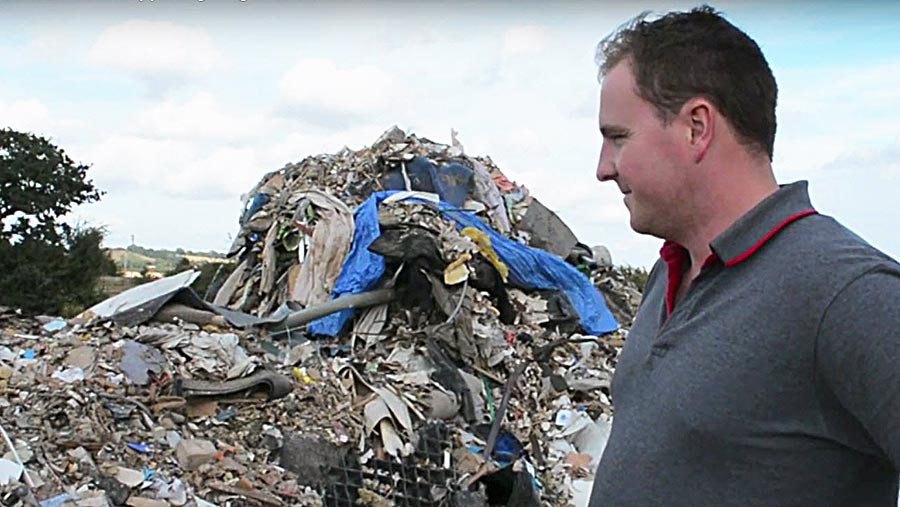Fly-tipping incidents cost farmers and councils £150m
 © David Cole/Rex Shutterstock
© David Cole/Rex Shutterstock Fly-tipping incidents are on the rise, leaving farmers and local authorities with a clean-up bill believed to be as much as £150m each year.
Local councils in England were forced to spend close to £50m clearing up fly-tipping incidents in 2014/15, according to latest figures.
Defra has published its annual fly-tipping statistics, which show there were 900,000 incidents in 2014/15, which is a 5.6% increase in the number of recorded incidents.
See also: Peter Kendall furious after fly-tipping incident on his farm
However, these figures do not include any fly-tipping incidents on private land as farmers and landowners are legally obliged to clear those themselves and pay for the costs out of their own pocket.
Fly-tipping facts
- 900,000 recorded incidents in 2014/15
- Costs of clearing rubbish from public land rose 11% to nearly £50m
- Two-thirds of incidents involve household waste
- Most common place for fly-tipping to occur is highways (48%)
- One-third of all incidents equate to a ‘small van load’ of rubbish
- BUT waste cleared by private landowners not included in official statistics
According to the Country Land and Business Association, dealing with tipped waste on farmland is estimated to cost the farming community between £50m and £100m a year.
Derek Holliday, head of environment for the CLA, said he was not surprised by the increase in Defra’s figures, as farmers had also been reporting a rise in the amount of rubbish left on their land.
One of the problems was that local authorities had started charging to pick up unwanted white goods on an individual basis, which had led more to be dumped illegally, he said.
“There is still a lot we can do in terms of education. People have taken it [an unwanted electrical item] in a car and dumped it in the road. We need to explain that people can take white goods to the tip.”
Mr Holliday said it was also clear from Defra’s figures that some local authorities were being far more proactive than others when it came to dealing with the fly-tipping problem.
For example, Barrow-in-Furness Borough Council in Cumbria and Eastbourne Borough Council in East Sussex seemed to be among just a few using new powers to seize vehicles suspected of being involved in fly-tipping.
Barrow-in Furness had seized 18 cars and Eastbourne 17 over the past 12 months, he said.
“I don’t think some of the local authorities are being as proactive as they could be.”
